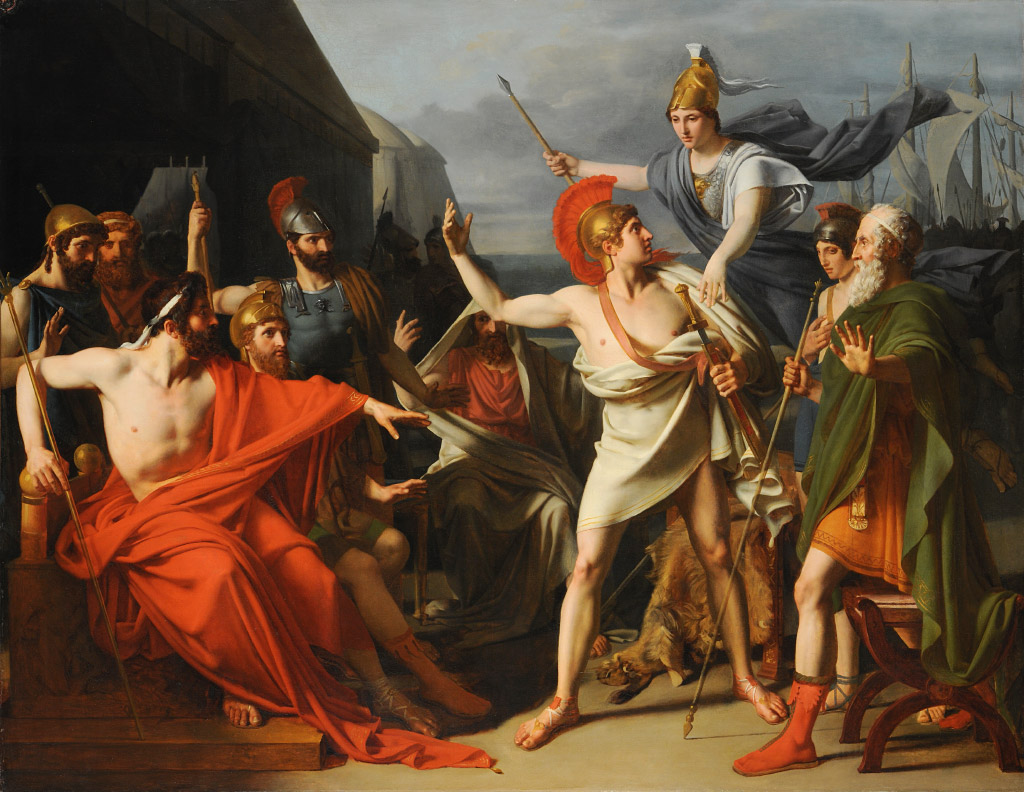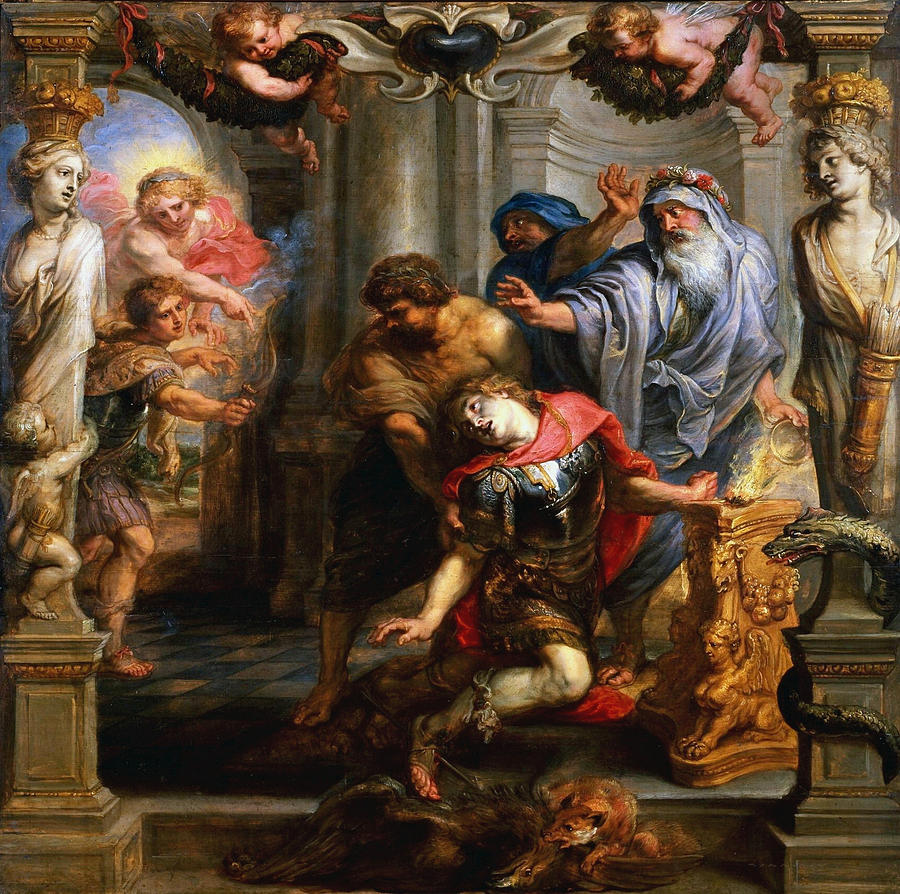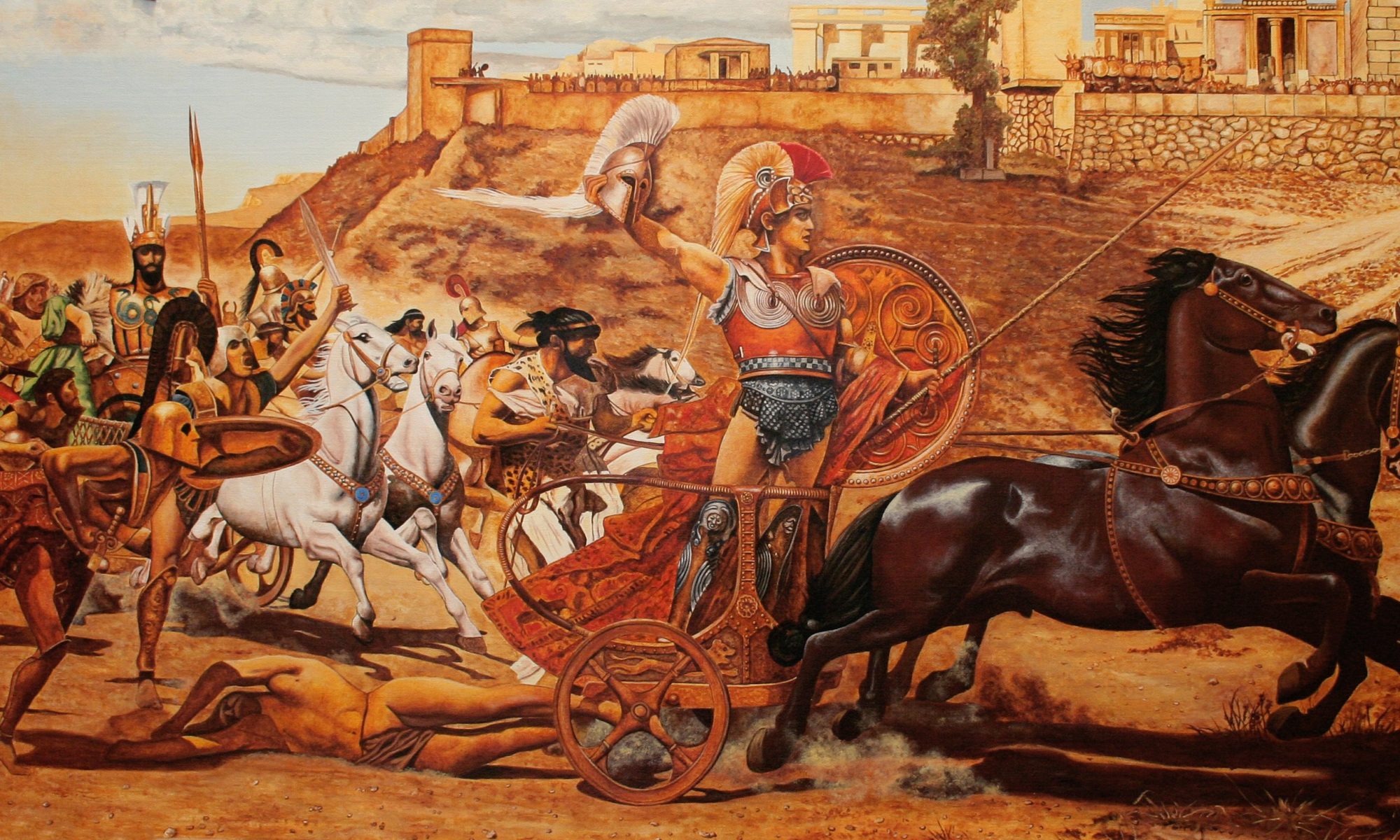Did Achilles actually have a weak heel? Did his mother really hide him away from war? And was he as courageous and great as they say he was?
Greek mythology has always interested me. Ever since I was a child, the Disney movie Hercules has been one of my all-time favourites. Although the movie mostly filled with inaccurate information, it’s a heartwarming story, and the songs are absolutely wonderful. Anyway, we’re supposed to be talking about Achilles!
Last month I finished The Song of Achilles as part of my book club’s monthly reading, and it got me thinking about the man and the myth surrounding this fearless warrior. Did he actually have a weak heel? Did his mother, the sea nymph Thetis, really hide him away from war? And was he as courageous and great as they say he was?
Early Life
Achilles was the son of Peleus, the mortal king of the Myrmidons, and Thetis, a Nereid. His mother tried everything she could to make Achilles immortal. The most well-known story of this is when she dunked him into the River Styx. The waters of this blessed river were said to bestow the protection of the gods. When Thetis submerged Achilles’ body into the water, she held him tightly by the foot. As a result, the water never touched Achilles’ heel.
Thetis even sent Achilles to the Aegean island of Skyros, where he was disguised as a girl to be hidden from the potential of war. This couldn’t stop Achilles, as it was his fate to become a great warrior, even if it meant an early death. It was Odysseus who discovered Achilles in Skyros. Although Achilles never took the oath to fight for Menelaus’ honour, he did end up agreeing to lead the Greeks to battle.
The Trojan War
Homer’s Iliad, written around 720 BCE, paints the picture of Achilles that tarnishes some of his heroic image. At the time, many knew Achilles was very handsome and a courageous fighter, but he was also very stubborn.
The main theme of the Iliad recounts the tenth and final year of the Trojan War, where Achilles withdraws from battle. Agamemnon, the leader of the Achaeans, was upset that he had to sacrifice his greatest prize, Chryseis, to appease Apollo, the god of sun and light, after a plague was sent to the Greeks.

Aggravated by his loss, Agamemnon orders another hero to give up his prize. He demands Achilles give Briseis over to him at once. Achilles, furious at this idea, withdraws from battle. He even asks his mother to convince Zeus to help the Trojans. Zeus inevitably agrees, and the Greeks are forced back towards their ships by the Trojans.
This move does make Agamemnon realize how important Achilles is to the Greek army and he sends Odysseus, Ajax and Phoenix to Achilles’ tent with an apology and a promise for many future lavish gifts. Achilles turns away both and decides that he would rather die as a nobody than a hero in Troy if it meant fighting alongside Agamemnon.
Having heard enough, Patroclus takes Achilles’ armour and leads an attack against the Trojans. Although he did get Achilles to fight again, it would be out of vengeance for Patroclus after he was killed by the famed fighter, Hector. Achilles launches himself back into war, kills Hector and drags Hector’s corpse behind his chariot for eleven days until Priam, Hector’s father, begs for his son’s body to be returned to Troy to be at peace.
The Fate of Achilles
Homer’s Iliad does not end up explaining what happens to Achilles after the Trojan War. According to legends, stories and pieces of Homer’s own Odyssey, Achilles returned to Troy after Hector’s funeral to get revenge for Patroclus’ death. Apollo was still upset over Hector’s death, as well as the death of his own son, Tenes, and wanted his own revenge on Achilles.
Apollo proceeds to tell Hector’s brother Paris of Achilles’ return. Paris’ weapon was a bow and arrow, which was not the weapon of choice for many heroes. When Achilles returns to Troy, Paris unexpectedly attacks him by shooting an arrow. Legend claims it was Apollo who guided the arrow to the one spot he knew Achilles was vulnerable; his heel. Although, some other stories believe Apollo transformed into Paris to shot the fatal arrow at Achilles.

Achilles died instantly yet remained undefeated on the battlefield. He remains one of the greatest Greek fighters who took part in the Trojan War. After his death, his bones were cremated and combined with Patroclus’ ashes in the same urn. In other works, namely the Aethiopis, Achilles is represented as living after his death on the island of Leuke.


I have been reading out a few of your stories and it’s pretty good stuff. I will surely bookmark your site.
great issues altogether, you simply gained a new reader.